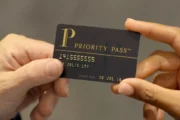-
Hello HfPers! Looking for some input/recommendations on a recent CEDR adjudication I received in relation to denied boarding where CEDR ruled in the favour of the airline (BA).
The short story is relatives were denied boarding as one of them had to be off loaded for medical reasons before the flight took off and we’ve been trying to get a refund or a rebooking of the flights following the submission of a medical certificate confirming fit to fly.
BA submitted a 98 page document including a 14 page defence document, quoting ‘Stott’, Montreal Convention et all and CEDR have basically said no action for airline and everything they have done is correct. We rejected the decision and are now looking at next steps, but it’s not a large amount of money so not sure about MCOL or complaint to CEDR, we have about 20 days to do this, and I’m also trying to be practical but the adjudication doesn’t feel right so thought I’d reach out to HFP community as have seen CEDR/MCOL have been raised before.
Happy to post up the key points from the adjudication and any pointers or suggestions greatly appreciated!@Sparky37 – you haven’t really given much detail for anyone to help although, whatever the situation, in terms of next steps, a complaint to CEDR isn’t going to change the decision; in that regards both parties have an entitlement to finality. From the brief description, I’m not sure that ‘denied boarding’ boarding in the strict sense of Article 4 is the right cause of action and feels like one that’s quite difficult to pursue at MCOL, so not one to embark upon unless your relatives are quite confident in navigating the legal system. BA would use the CEDR decision against them.
The case of Stott to which you refer is a UK Supreme Court decision which doesn’t really go in your favour.
Again, without knowing more facts it’s hard to say, but this actually sounds much more like a travel insurance claim.
Thanks JDB for the response and so quickly. Yes I’m aware this comes across as a bit cryptic but working on a redacted version of the adjudication which will help one way or the other. Not keen on pursuing MCOL given the legalities and amounts involved and relatives are pensioners to, so financially unviable.
It’s just the flights so £2550 and some change.
Sounds like a travel insurance claim might be the simplest.
Managed a workaround on the adjudicators response and this is here, and apologies for the length. As I said in my original post and to expand, we have asked for a letter for the insurers to confirm that my relatives did not take the flight but the letter receives says ‘no show’, so insurers will not pay out. We also, as we thought was correct, asked to be rebooked, appreciating this was timebound.
How was this decision reached?
1. I have considered all of the documentation provided by the customer. I note their unfortunate experience on the Flight and I acknowledge that this will have been an upsetting experience for both of the passengers. I also note the customer’s unhappiness with the company’s responses to their correspondence thereafter.
2. However, I am not persuaded that there is a basis to uphold any element of the customer’s claim for the reasons detailed below.
3. I appreciate that the customer will be disappointed with my conclusions, particularly as they feel that each party has attempted to pass responsibility to another.
4. Notwithstanding, I must reach a decision based on the evidence and the pertinent legislation. As I explain below, I find that the majority of the matters raised in the claim either do not fall within the remit of the Scheme or should be directed to another body.
5. The customer has provided the company’s response to a Subject Access Request (SAR). I note that within their complaint to the company, the customer also referred to responses they received from the company’s the Data Protection team.
6. The Information Commissioner’s Office (ICO) is responsible for upholding information rights in the public interest, promoting openness by public bodies and data privacy for individuals. Complaints relating to an alleged breach of GDPR, the use of an individual’s data, or a response to an SAR, fall within the remit of the ICO.
7. This means that the issues the customer has raised relating to the SAR and data protection do not fall within the remit of this Scheme and should be directed to the ICO.
8. The customer also detailed in their complaint to the company that they had requested special assistance at the airport and to board the aircraft. The customer explained that this had been provided to the lounge, but the agents did not return to help the passengers to board the Flight.
9. Regulation 1107 sets out rules for the protection of and provision of assistance to disabled
persons and persons with reduced mobility when travelling by air.
10. Airlines are responsible for providing the assistance detailed in Annex II of Regulation 1107. This includes the carriage of recognised assistance dogs, the transportation of up to two pieces of mobility equipment, communication of essential information in accessible formats, making reasonable efforts to arrange seating to meet the needs of individuals with disability or reduced mobility and accompanying persons, and assistance to move to
toilet facilities.
11. The managing body of the airport is responsible for providing the assistance specified in
Annex I of Regulation 1107. This includes assistance and arrangements necessary to enable disabled persons and persons with reduced mobility to communicate their arrival at the airport and their request for assistance at designated points, to move from a designated point to the check-in counter, to check-in and register baggage, to proceed from the check-in counter with completion of emigration, customs and security procedures, and to
board the aircraft with the provision of lifts, wheelchairs or other assistance needed as
appropriate.
12. Therefore, the airport, rather than the airline, is responsible for providing assistance to
board the aircraft.
13. I do not doubt that the lack of special assistance from the lounge to board the Flight will have impacted the passengers; this is detailed in their complaint to the company. However, as the customer’s claim is brought against the airline, and not the airport, I am unable to make a finding in relation to the special assistance provided by the airport.
14. I note that in reply to the defence, the customer refers to Article 17 of the Montreal Convention which deals with death and injury of passengers. However, as stated in Scheme Rule 2.2.4, claims for personal injury do not fall within the remit of this Scheme.
15. The issue remaining is the removal of the customer’s husband from the Flight.
16. Regulation 261, now the APR Regulations, provides common rules on compensation and assistance to passengers in the event of denied boarding, flight delays, and cancellations.
17. It defines denied boarding as “a refusal to carry passengers on a flight, although they have presented themselves for boarding under the conditions laid down in Article 3(2), except where there are reasonable grounds to deny them boarding, such as reasons of health, safety or security, or inadequate travel documentation”.
18. The conditions in Article 3(2) are that the passenger must have a confirmed reservation on the flight and have presented themselves for check-in on time.
19. As a result, denied boarding for the purposes of compensation under the APR Regulations, does not cover a situation where there are reasonable grounds, including health grounds, for refusing to carry a passenger on a flight.
20. The company has provided the Conditions of Carriage which passengers must accept in
order to complete a booking.
21. Condition 7a) explains that the company may refuse to carry a passenger if their “mental or physical state or health is considered a danger or risk to you, the aircraft or any person in it, or you have failed to meet government, public health body, or other government enforcement body, health requirements applicable for the country you are travelling to.”
22. The company says that the customer’s was disembarked from the Flight when they became unresponsive as the aircraft taxied.
23. I am persuaded therefore that was denied boarding for health reasons. As a result, I am satisfied that the company had reasonable grounds to deny boarding. Consequently, I find that the not entitled to denied boarding compensation or to a refund of the cost of the Flight.
24. I appreciate why the customer also disembarked the Flight. However, as the customer was not denied boarding, and opted to disembark, the customer effectively abandoned the Flight. As such, I am persuaded that the customer is not entitled to denied boarding compensation under the APR Regulations or to a refund of the cost of the Flight.
25. I note that Article 4 of Regulation 1107 says that disabled passengers or those with reduced mobility who have denied boarding on the grounds of their disability should be offered a refund or re-routing under Article 8 of Regulation 261.
26. I am persuaded that was disembarked when they became unwell onboard the Flight, and not because of their disability or reduced mobility. As such, I am not persuaded that the customer is entitled to re-routing or a refund of the cost of the Flight under Article 8.
27. Condition 3b3) says that if, after beginning the journey, a passenger becomes ill, they must provide the company with a medical certificate stating the facts relating to the illness and confirm the date on which the passenger will be fit to travel. It says that upon receipt of the medical certificate, the company may decide to extend the validity period of the passenger’s ticket and the tickets of any immediate family members also travelling
28. I am not persuaded, on balance, that this would apply to the circumstances of this case. While it is clear that both passengers boarded the Flight, they did not travel to their destination and the aircraft returned to the terminal when became unresponsive. As such, I am not persuaded, on balance, that the passengers had begun their journey such that they would be entitled to ask the company to extend the validity period of their tickets.
29. In any event, condition 3b3) does not guarantee that the company will extend the validity
period of the ticket when a passenger becomes ill after they had begun their journey.
30. In relation to condition 3e), this details a passenger’s rights if they are prevented from
travelling by events beyond their control. To be entitled to a credit for the non-refundable part of the fare, the passenger must have a completely unused ticket.
31. However, in this instance, both passengers had boarded the Flight before disembarking the aircraft. As a result, I am not persuaded that they meet the criteria for a credit for the non-refundable part of the fare.
32. Therefore, having carefully considered all of the evidence provided, I find, on balance, no basis to direct the company to refund the cost of the Flight.
33. The customer requests £1,080.00 compensation for stress, anxiety, and distress. Similarly, I find no basis to direct the company to provide such compensation. The APR Regulations do not cover claims for poor customer service, inconvenience, or distress.
34. While I note the customer’s submissions regarding mental injury, damages for loss of enjoyment, injury to feelings, distress, or emotional or psychological injuries are not recoverable under the Montreal Convention.
35. I have not been provided with any other basis under which a passenger may be able to recover compensation for poor customer service, inconvenience or distress. This aspect of the claim is therefore unable to succeed.Do you disagree with point 26?
If so, what would be your argument for MCOL?You wrote
The short story is relatives were denied boarding as one of them had to be off loaded for medical reasons before the flight took off
CEDR wrote
22. The company says that the customer’s was disembarked from the Flight when they became unresponsive as the aircraft taxied
So it seems they were permitted to board the plane and was then taxiing then one became ill and the plane returned to the gate and then removed for medical reasons.
This is simply NOT denied boarding and so any claim under that heading would fail because it is clear they did board the aircraft.
This is a matter for their travel insurance.
Hi Richie. We’ve never disagreed or disputed that one of the passengers was revived from the flight. IF it went to MCOL, the position would be Article 8 of EC261 allows for reimbursement within 7 days, or the full cost of the ticket, return flight at earliest opportunity to first pint of departure and rerouting to final destination at a later date at the passengers convenience, subject to seat availability.
Thanks BA FLYER. Yes we would expect it to be a case for insurers but they are not interested as per my previous post. Under the airline T&C’s, this situation is deemed as denied boarding, so it’s the remedies for this that we have been trying to resolve.
Just to confirm, IF I did go to MCOL, I know it would need to be on more than Article 8, and there are other Articles.
@Sparky37 – unfortunately, I think CEDR’s overall findings on each point are correct; the claim was doomed to fail in its entirety. The terrible grammar/spelling of the decision is a bit scary and the finding at point 28 that the passengers hadn’t started their journey is somewhat bizarre, although luckily nothing turns on it.
There’s no prospect of a successful MCOL claim; I’m not sure even what the basis of any such claim would be.
It really is a matter for insurance and if I were you, I would be helping your relatives to read the riot act to the insurers. Their position is entirely untenable.
In case you get involved in any such future action it really is worth just focussing on the key points and not get bogged down with all the issues CEDR can’t even consider. It can cause even a good claim to fail.
You have mentioned denied boarding multiple times, but it’s become clear that they actually boarded.
If you used the same incorrect terminology with your insurer, you will likely get a different response to that of a more accurate version (removed from the flight due to medical reasons).
I suggest instead of wasting time and effort in CEDR/MCOL, you spend the time asking BA to give you an accurate letter of what happened and go back to your insurer.
I’m not sure how your insurer will respond as your first attempt involved passing on an incorrect account of what happened (the BA letter – with hindsight, you really shouldn’t have done that) plus you calling it denied boarding (which it wasn’t) so let’s hope they will listen when you tell a very different story.
Thanks BA FLYER. Yes we would expect it to be a case for insurers but they are not interested as per my previous post. Under the airline T&C’s, this situation is deemed as denied boarding, so it’s the remedies for this that we have been trying to resolve.
It might help move the discussion forward if you quoted exactly which part of the airline’s T&C’s you are referring to there. For their part, Regulation 261 / the APR Regulations define “denied boarding” to exclude “reasonable grounds” – and if I’ve understood what happened correctly, it would be difficult to argue the grounds weren’t reasonable.
You talk about the adjudication not feeling right, but think about it from the point of view of the airline. Unless there is something that doesn’t come through from the redacted decision, it’s hard to see what they could or should have done differently. Regulation 261 is meant to discourage airlines from behaving badly (e.g. by recklessly overbooking), not to force them to take on risks that are completely outside their control.
It does sound to me that your argument is with the insurance company (or possibly with the airport, if you are arguing that the illness was caused by their failure to provide assistance), but not with the airline. I realise that the airline has inaccurately said that the passengers were “no shows”, and possibly you could attempt to correct that by exercising your data protection rights. This is my own area of expertise, which is why I’m commenting, and it sounds from the CEDR decision that you have already gone some way down that path.
But I don’t think it’s necessarily the best course of action, because I don’t understand why it really matters to the insurance claim. After all, if the passenger had unfortunately been taken ill a short while earlier in the departure lounge, they would indeed be a “no show” as far as the airline was concerned – but surely would still be entitled to claim on their insurance. Assuming you have other evidence to show they were genuinely ill, the purpose of the letter should just be to establish that they didn’t take the holiday anyway, and I don’t see why “no show” in any way contradicts that.
Did the insurance company give any more detail about why they are taking the position that they are taking?
I am sorry this happened to your relatives. I must say this sounds like an insurance claim. Did you send the letter stating no show to the insurers?
I would approach the insurer again and explain that you tried to go to CEDR to get money their back from BA but were denied and that the following two points from the ruling apply:
22. The company says that the customer’s was disembarked from the Flight when they became unresponsive as the aircraft taxied.
23. I am persuaded therefore that was denied boarding for health reasons. As a result, I am satisfied that the company had reasonable grounds to deny boarding.
Clearly there was a medical issue which prevented your relatives from flying. The previous letter from BA was erroneous as the passengers clearly boarded the flight but were offloaded. They cannot be a no-show in the usual sense of not arriving at the airport in time and failing to check in and present themselves for the flight.
Thanks JDB, Chris BCN and R76 for your input and comments.
Yes the grammar is worrying and reading this a number of times it read that there was some selective reasoning going on, referencing Article 8 at point 26 but then airline T&C’s at point 27. Also with 27 they omit, or the first date after the recovery date and the use of ‘may’ in this goes to the grammatical errors and interpretation of the adjudicator as there is a choice.
They also make reference to the airline t&c’s, they rely on Clause 5d3 or 7 to refuse refunds, and this is where the denied boarding comes from as it’s used across the T&C’s and the EC/261 articles, which take precedence over an airlines own T&C’s, were there no mention on may, might or maybe. Clearly they did board and start their journey, so this also contradicts point 28 of the adjudication.All a bit of a mess really with a bit of this and a bit of that which led to the feeling that something just didn’t feel right so I thought I’d reach out, and glad I did. I’ll go back to the insurers very directly!
I’m sorry to contradict you, but what you are taking as selective reasoning, I read as the adjudicator doing everything they can to treat you fairly.
The point is that there are several different grounds you could use to complain (and I think perhaps you may have quoted in your complaint?) These include Regulation 261, Regulation 1107, and the airline’s T&Cs. If any one of those grounds for complaint stood up then they’d find in your favour – so they’ve considered each of them, and concluded unfortunately that none of them do.
I understand now your point about the airline T&C’s. I think you’re saying that they are quoting their T&Cs to justify refusing to carry your relatives, then you are saying that in everyday language this means they were denied boarding, and then you are referring to Regulation 261 to say that if they were denied boarding, they had certain rights. Unfortunately, you can’t mix and match like that. Regulation 261 contains its own definition of “denied boarding”, which is the one that talks about “reasonable grounds”.
I agree that point 28 is a little eyebrow-raising – I personally would say you have begun your journey at the point the aircraft pushes back – but that part of the T&Cs appears to describe a concession which BA at its discretion *may* make, so wouldn’t have helped you a lot if it had gone the other way anyway. In fact, from an insurance point of view I’m not sure it would be in your interest to say that the journey had started – if nothing else, it complicates what ought to be (but apparently isn’t) a simple claim.
Taking it up again with the insurer (and if necessary their regulator, whoever that is – not my area of expertise!) is definitely the right way to go. Let us know how you get on!
Thanks R76. The feeling of contradiction comes from the use of selective parts of regulation & T&C’s to frame the response and the feeling of cherry picking. The airlines T&C’s make reference to EC261, where statute has precedence, but not if the T&C’s say something else. There’s either a governing regulation or there isn’t and hoping between the 2 doesn’t feel right.
I will add that we didn’t mention EC261, Montreal, Stott, Graham v Thomas Cook, Cowden v BA, Bassam, watts et al until we got the BA Defence. And that’s aside from the DPA issue – which is another worrying story.
As for the wording, it’s not my interpretation at all, it’s what they actually quote and say. So all very legal and technical but as a consumer, if it looks like a fish and smells like a fish….
I will let you know how we get on.@Sparky37 – I really would focus on the insurer. They have fobbed you off in a relatively standard manner, so need to be put right.
I don’t see there has been anything fishy to be worried about. Firstly, CEDR was correct that it couldn’t deal with the data issue and as your complaint was against BA it also couldn’t address the airport special assistance service. CEDR simply doesn’t have the power to award you the £1,080 you sought for stress, anxiety etc. Further, the UK Supreme Court and the supreme courts in the US and Australia agree with CEDR’s interpretation of the Montreal Convention that no compensation is due.
That essentially leaves the claim for ‘involuntary denied boarding’ but there wasn’t any IDB and even if there had been, BA has an absolute defence on grounds of health and that the second passenger was offloaded voluntarily.
It’s an instance where you needed to seek BA’s goodwill, but you have hit them with all sorts of things and BA has responded in like manner.
I’m afraid you started off with an error that means your claim on BA could never succeed.
Even though as JDB points out you included extra claims in your CEDR claim that are for things CEDR didn’t have the abiity to adjudicate, which takes energy away from CEDR’s potential ability to decide in your favour, and even though BA added in some unhelpful extras to muddy things, you were never ever going to win a 261 claim for denied boarding if boarding had not been denied.
I’ll bet there’s even something in some case somewhere which says that if an aircraft has left the gate and is taxiing, then if a passenger is sitting in a seat on that plane at that point then boarding has not been denied.
So you were always going to lose on a claim for denied boarding.
Denied boarding is not the same as having successfully boarded the aircraft (so boarding was not denied) and then later being removed from the aircraft having become, in the airline’s reasonable view and as provided for in their terms and conditions, unfit to fly for medical reasons.
I understand you’d like to perform for your relatives and I do not consider £2500-odd a small sum at all. Particularly if they are pensioners. I agree with AJA and ChrisBcn that your best bet is to ask BA to correct their wording to give to the insurance company to “unable to continue with flight as unfit to fly – in accordnce with [which bit of airline’s ts and cs(attach a copy) … (medical condition) ” or similar.
Check the wording in the insurance policy so that you will know the wording to ask the airline to kindly correct to. No show is definitely incorrect so you are entitled to politely ask them to help you out with a correction. Being a medical issue his wife needed to deplane too to provide support.
A reurn to the gate would have been very costly for the airline and tempers may have been short generally aftet airport mobility assistance failed to appear on the way to the plane which they did then board.
Your insurance company has not made an unreasonable refusal faced with a document that says No Show and I think if you present all the facts to them you will eventually win. But this will go a lot easier if you can simply ask the airline to state things correctly cos No Show is not correct.
Even though we know the mobility assistance legally supposed to be provided at airports has many failures I think you’d have to work hard to make a claim stick, that that was the cause of the unwellness.
I’d like you to be able to help your relatives so please grovel if you have to to get the airline to issue a correction, and focus on them satisfying 5he insurance co to get the benefit of the coverage they paid for.
I do hope that the unresponsive state of your relative in his seat after boarding and whilst taxiing, was not due to passed out due to excessive consumption of alcohol in the lounge btw as thst could make a claim difficult. You don’t need that 🙂
Good luck with helping your relatives on their insurance claim.
Thanks JDB and Lady London for your additional pointers and input. It’s been really useful.
I’ve included the salient points from the CEDR adjudication but want to clear up a couple of areas. I had adopted the denied boarding references and terminology as this is in the airlines T&C’s, the subsection is called denied boarding compensation, and what they were using, and have used in their further correspondence and defence document to cover this situation. It’s also in the EC261 articles that again they quoted and we quoted in terms of compensation, and CEDR ‘s scheme rules.
We’ve also followed their T&C’s, or so we thought, so we have denied boarding, unfit fit to fly, no show and boarding not denied as relatives had started their journey as soon as the aircraft started moving under its own power, all framed under denied boarding compensation in the airlines T&C’s with dotted lines to other sections and articles.
The relative in question confirmed verbally before being offloaded that he wanted to continue with the flight and the airlines T&C’s confirm a medical certificate needs to be produced, which it was, and this makes clear the unresponsiveness was caused by the over exertion in getting to the aircraft as the mobility support was not there. He’s in his 80’s and has mobility issues.
I accept CEDR won’t rule on compensation but this was in our original submission as they had asked what we had asked from the airline and this is why it was included, and they accepted the submission.So whilst disappointed and frustrated, I’m also balanced enough to accept when you’re on thin ice, or none at all, and having read and used HfP, I reached out, and as I said I’m glad I did and am thankful for everyone’s contributions and insights.
I will be going back to the insurers very strongly and will let you know how I get on😉It is clear from BA’s T&Cs 3b3 that BA MAY decide to extend validity of the ticket, but it does also specify your “next” flight. Whatever it is, it isn’t denied boarding – as others have said. I think with your CEDR claim you’re trying to hammer in a square peg into a round hole.
The CEDR adjudication should be sufficient for the insurer that it’s a legitimate claim and not a no-show, but BA should also correct this. Personally I see this as a very simple insurance claim.
…Personally I see this as a very simple insurance claim.
The insurer may just say claim against the special assistance provider.
- You must be logged in to reply to this topic.
Popular articles this week:



















